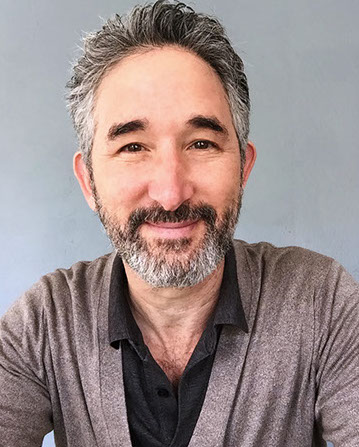Due to on going Covid-19 risk factors, I continue to offer video read more...
Growth & Healing
Therapy
Internal Family Systems (IFS) | Somatic Psychotherapy | EMDR
Internal Family Systerms (IFS)
Somatic Psychotherapy
EMDR
COVID-19 INFORMATION
Nature is driven to bloom and regenerate itself, as are we.
A difference with human-nature, is we can do it by choice

Daniel Factor, LMFT #82033

A time comes in everyone's life when we need to do some growth & healing work. Thankfully the ability to grow & heal is within our human-nature, a nature that comes alive when receiving the support we need.
Therapy provides this support, and in a manner specifically designed to work for you.
Throughout my life, and with my broad training and experience as a therapist, I've experienced my own, and I have supported others, in developing their own unique ability to overcome what's happening 'right now', no matter what happened 'back then’, and to navigate their concerns about their future.
And so I trust in this: Creating in your own expressive way your best life is what I know you are meant—and able—to do.
Guiding and supporting you in experiencing this for yourself will be a heartfelt privilege for me.
To discover more, please explore below.
Services
Helping with a broad range of emotional, cognitive, behavioral, and relationship challenges
Approach
Helping with a broad range of emotional, cognitive, behavioral, and relationship challenges
FAQ
State of California, Licensed Marriage & Family Therapist, #82033
Master Degree in Clinical Psychology (2011) - The Chicago School of Professional Psychology, Los Angeles Campus (TCS)
(2011 - 2013) Internship at the Southern California Counseling Center (SCCC)
Advanced Training and Credentials —
(2012 - 2013) Trauma Training - Basic EMDR and Trauma Resiliency Model, Level 1 (SCCC)
(2014) Trauma Resiliency Model, Level 2 (TRI)
(2015 - March 2023) Certified EMDR Clinician (EMDRIA)
(2015) 'Feeling State Addiction Protocol' (FSAP) (EMDRIA)
(2017) 'When There are No Words', Early Trauma & Neglect (EMDRIA)
(2018) 'Hakomi Essential Skill', Certificate — Hakomi Institute of California (HIC)
(2019) 'Dissociation of the Personality and EMDR, Treatment of Chronic Traumatization' (EMDRIA)
(2020) IFS Informed EMDR (EMDR-IFS)
(2021) Coherence Therapy (CT)
Board of Directors (2013 - 2018) - Los Angeles Chapter of California Association of Marriage & Family Therapists (LA-CAMFT)
Therapy is unlike any other kind of relationship, in part because it’s one where two people (me and you) are exclusively focused on one (you).
I have a lot of experience with first-time therapy clients—I also was once a first-time therapy goer myself—and I understand what it's like to wonder and have questions about how 'to do' therapy.
Just know, if you're having questions about ‘therapy', this is a natural topic for us to cover when we meet, or during our first phone chat.
As we begin and settle in together, we can focus on what brings you in right now and what it is you want or need to get out of our work together.
You can share with me whatever you wish according to your readiness to do so, and all that you decide to share will be held in complete privacy following all confidentiality laws and practices that govern my profession.
My own initial goal is to create a relaxed and welcoming connection with you, to help you feel supported and at-ease with me, and to earn your trust.
As I learn about you, and throughout our time together, I can also offer suggestions for you to experiment with, along with my reasoning for doing so, according to my values of transparency, collaboration, and my commitment to empowering you.
This is a great question, and actually a big question. A part of the answer is this: Long-term research has shown that the most important component of effective therapy is the rapport between the client and the therapist, called the 'therapeutic relationship'.
This is because the vast majority of psychological suffering is rooted in our relationships, beginning even while gestating in the womb, and of course throughout our lifespan.
Having a kind, self-aware, well informed, and experienced person to provide a 'therapeutic relationship' is an essential ingredient of a growth & healing process.
But that's not all, long-term research has also shown that effective therapy results from what's innately within the person seeking support.
This is because all of us have natural qualities & capacities that lead us to positive results. Finding and strengthening your natural qualities & capacities is a big part of what effective therapy offers.
Knowing all of the above is why I have selected to work with the toolbox that I do, and why I am what is called a ‘Client Centered' therapist rather than one adhering or limiting myself to a single method or model.
You can read more in the APPROACH section above, and I welcome any additional questions during our first phone chat, and at any time while working together.
Therapy moves at a pace suited to each unique individual; and given that each person begins this process with me from wherever they are in life, or from whatever it is that calls on them to seek out growth & healing support, the length of therapy is highly variable.
Throughout the process we will check-in together to discuss how things are going, and how we are doing in moving towards your goals, or perhaps even redefine them.
Along the way, your awareness of welcomed changes will guide your decision-making as to the duration of the process.
And while I’ll always be focused on your goals and be attuned to your progress, you will be the best judge and decider about continuing, pausing, or concluding therapy.
Progress can be experienced as a calming or an experience of relief, a feeling of being more connected, having increased awareness, having a new sense of enthusiasm, or noticing steps towards having better functioning relationships.
Progress can be noticed as welcomed changes in your thought patterns, in your relationship to your emotions, or making behavioral adjustments that serve you well—these signals of change can be very subtle, and at other times be more pronounced.
Progress also is experienced with new ways to respond to external events or people in your life, and certainly noticing the fading of any specific 'symptoms & behaviors’ that once caused you suffering.
These are just a few of the many ways you can experience that therapy is working for you, as the measure of progress is always related to where you first began and the distance you travel from that starting point.
I have a competitive standard fee, which is $185 for a 50-minute session; longer sessions are an option, and are typically scheduled in advance, and they carry an additional per-minute prorated charge based on the standard fee.
Session frequency is weekly in the beginning, and can increase depending on need, and decrease as we transition to conclude therapy. The primary determination for session frequency is to make therapy effective and useful, and not based on affordability. If a lower fee is required, I’m happy to suggest high quality low-fee alternatives.
If you plan to use insurance, just know that I am an out-of-network provider, and that your plan will need to be a PPO plan—non-PPO plans generally do not provide out-of-network benefits.
At the end of the first month, and then every two months following that, I will provide you with what is called a 'Superbill', which will state your 'dates of service’, your payments already made to me, along with all other information required by your insurance carrier, for you to submit a claim for reimbursements.
Reimbursement will be determined by your insurance provider, according to the details of your specific PPO plan.
Most insurance companies provide a Summary of Plan Details on their website, according to each PPO plan type they offer, but here are some essential questions you may need to find on-line, or ask your insurer directly:
What 'out-of-network' mental health coverage do I have?
What is my 'out-of-network' deductible amount?
How are session reimbursements calculated?
My therapist provides a Superbill for me to submit to you, must I also submit one of your Claim Forms along with the Superbill? If yes, where I can a get one?
If you have reimbursement benefits with your PPO plan, I will provide support as needed to complete the reimbursement process with your insurance carrier.
Scheduling a first appointment is easy to do, and is only done by phone when speaking together, and not by email.
When we agree to schedule, my policy is to do so within 7-days, and not beyond that length of time, due to the nature of my practice. I’ll let you know what available openings I have, and we'll figure out what day/time works best for you.
When we set a first session time, I will send you a Treatment Agreement(s) which will have additional information for you to review, print & complete and have ready for your first session; additionally, I will send you an ‘Information Sheet' about the office location, parking options, and entry instructions for the building and suite.
Thank you for exploring my website, and I welcome any questions you may have about any of the information in these FAQs or elsewhere during your visit here.

